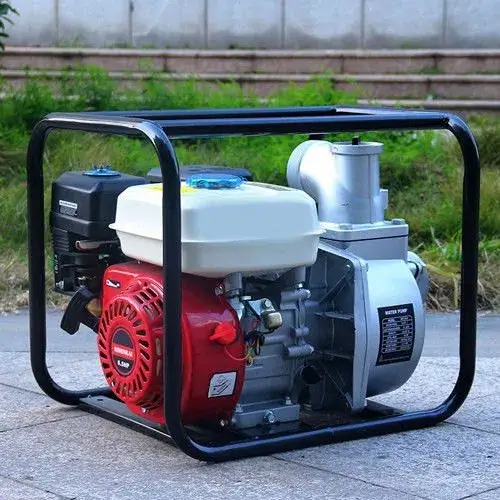A home generator operates the appliances, lights, cooling and heating systems, sump pumps, etc. The sump pump is situated in the basement’s deepest point and has a sensor that turns it on when the water level rises excessively. Water accumulated in a sump pump’s basin is released into an exterior drain. The backup generator for sump pump helps run the machine during power outages and prevents basement flooding.
Things To Consider While Buying Sump Pump Generators
The following are the primary factors one should consider when acquiring generators for sump pumps.
-
Type Of Generators And Fuel Used
Portable, inverter, and standby generators are the three main types of sump pump generators. They usually operate on propane, gasoline, natural gas, solar power, etc. The most prevalent kind of fuel for portable generators is gasoline. Propane is a fuel that burns cleanly and is frequently utilized in backup generator models.
Another popular fuel for portable generators is diesel, which can be kept in storage for longer than gasoline. Only standby generators utilize natural gas. During power cuts, solar generators use energy from the sun to support your residence through solar panels.
-
Wattage
Purchase a generator that satisfies the wattage requirements of the sump pump. The generator’s size increases if the sump pump’s horsepower is significant. For instance, a sump pump with 1/3 horsepower typically uses 1,300 watts to start and 800 watts to run. The average wattage required for the sump pump ranges from 750 to 1,500 watts.
-
Automatic And Electric Start
During power outage events, the generator will turn on automatically due to the automatic start feature. With an automatic start feature, there will be no need for human intervention to run the device. In general, the generator models come with automatic starting. Numerous portable generator models come with electric push-buttons for manually starting the engine.
-
Noise Level
The noise level of the generators is another essential consideration. Louder sump pump generators can operate at 90 to 100 dB levels, whereas quieter models typically operate at around 50 to 60 dB. It is better to acquire specific generator models with Quiet Test technology or run at lower RPMs.
-
Transfer Switches
Numerous local and federal electrical rules mandate the use of transfer switches. The backup generator for the sump pump will have a transfer switch that offers a safe and secure connection and disconnection. Massive backup generators frequently come with sophisticated emergency switches that control and smoothly transfer electricity from the utility grid and back. There are manual and automatic types of transfer switches.
-
Automatic CO Shutoff
A few generators have a built-in carbon monoxide shutoff that turns off automatically when it catches dangerous quantities of the gas. Many modern portable ones have this function, ensuring safety and comfort when using the machine.
-
Weight And Portability
It is vital to check the total weight and portability feature of the sump pump generators. Portable models are more compact than permanent standby ones and frequently come with wheel kits for convenient travel.
Conclusion
Choosing the proper backup generator for the sump pump will assist in operating the pump in case of power cuts. However, some high-end models arrive with extra features, making them the best in the market. Fuel source, generator type, performance, and safety features are vital to consider when acquiring a generator.

